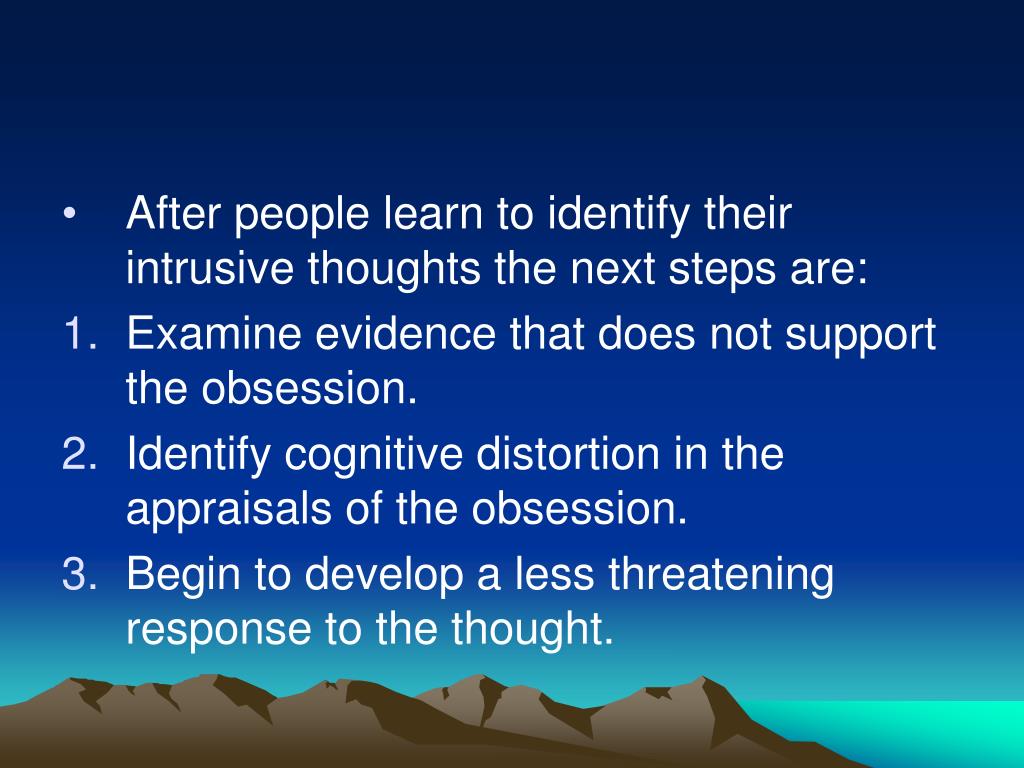

This tendency to self-protect from negative emotions prohibits these individuals from expressing their emotions effectively. Rather than deal with this anger toward self for what it is, people with obsessions direct the anger toward “legitimate” targets to protect themselves from further shame (p. In tandem with shame, anger plagues these individuals who interpret negative emotion as inadequacy. Unable to measure up to their own ideals, individuals with obsessive-only OCD battle shame and attempt to cope with it by rationalizing, moralizing, intellectualizing or compartmentalizing their intrusive thoughts. Their internal standard of excellence, while admirable, is often unachievable. McWilliams adds that “hey are generally dependable and reliable and have high standards and ethical values” (p. Individuals with this obsessive personality structure are characterized as stubborn, tidy, prompt, thorough, thrifty, rigid, cerebral, persistent, and prone to arguing over semantics. The former feels no compulsion to act upon their continual, intrusive thoughts (p. In her book Psychoanalytic Diagnosis: Understanding Personality Structure in the Clinical Process, Nancy McWilliams illuminates the personality differences that delineate the obsessive individual from the compulsive. Not what many would call “normal” behavior. The philosophers of the ancient world are a classic example of thinkers who spent hour upon hour pouring over moral debates and ruminating over unanswerable questions. These individuals spend a considerable amount of time mentally running through scenarios, arguments, and ideas.

The nature of these obsessive thoughts, however, is quite unlike ordinary daydreaming. philosophy professors, poets), obsessions are not always answered with compulsive behaviors. They buy self-improvement books…and they like to focus on continuous improvement at work because it fits in with their sense of moral improvement.”įor those who are deep thinkers (e.g. According to Michael Maccoby, “ are self-reliant and conscientious….They look constantly for ways to help people, listen better, resolve conflict, and find win-win opportunities. OCD Examplesĭescriptions of those experiencing obsessive thoughts might surprise you. These people are usually cognizant of the fact that their thoughts and behaviors are not rational the impulse to act on the thought is just too strong to resist. Those who fall under the more common dual-symptom category experience obsessive thoughts and attempt to resolve their discomfort by performing the compulsive behavior. Examples of single-symptom sufferers might include individuals characterized as workaholics or those with anal-retentive personalities. they experience obsessive, intrusive thoughts but do not engage in any compulsive behavior), but many sufferers exhibit both. Individuals with obsessive-compulsive disorder may exhibit just one symptom (i.e. This article provides some much-needed clarification. The acronym OCD is tossed about flippantly today, being used to describe behaviors as innocent as eating only blue M&M’s to more stereotypical rituals such as excessive hand-washing. The general public is grossly uneducated when it comes to understanding obsessive-compulsive disorder. Are you plagued by fear? Do you engage in rituals motivated by superstition? How do you know if these are normal or are symptoms of a clinical disorder?


 0 kommentar(er)
0 kommentar(er)
